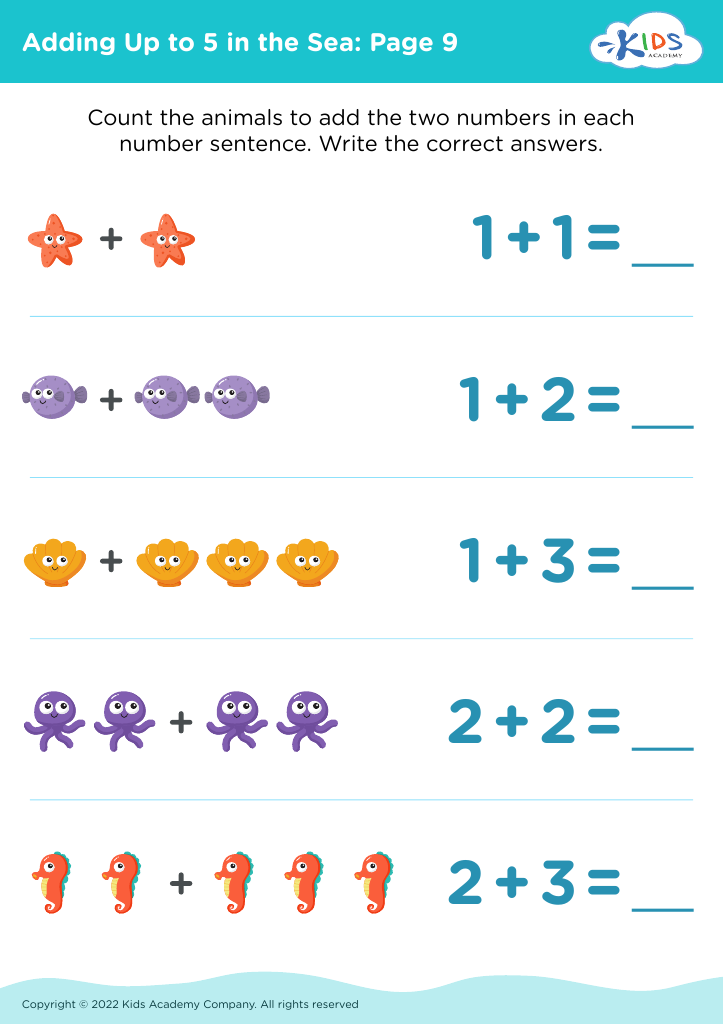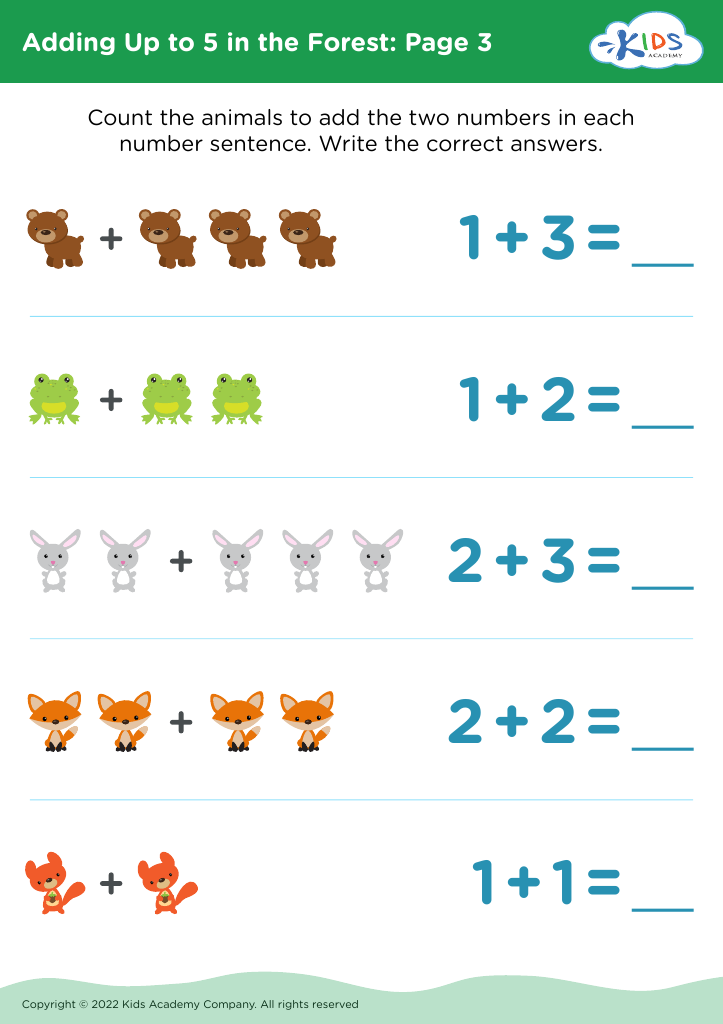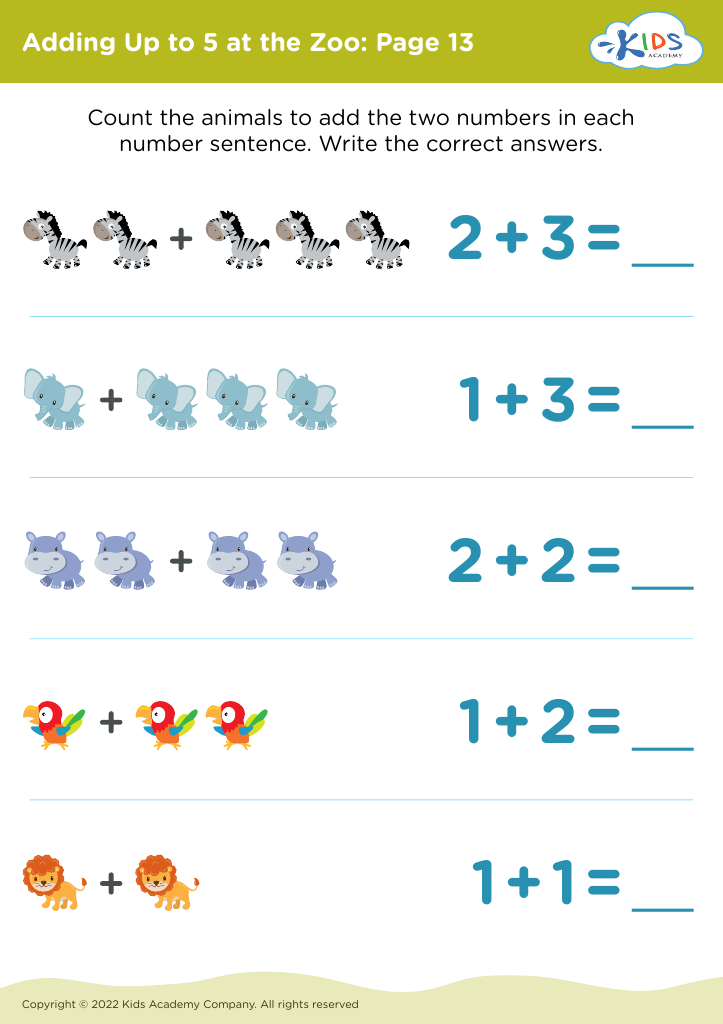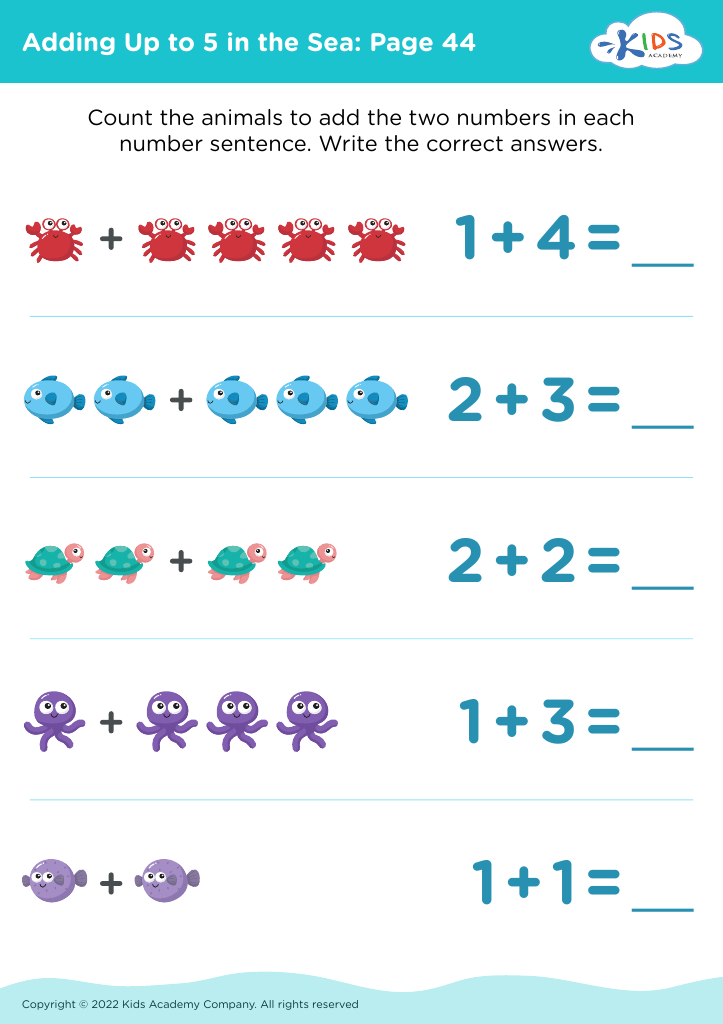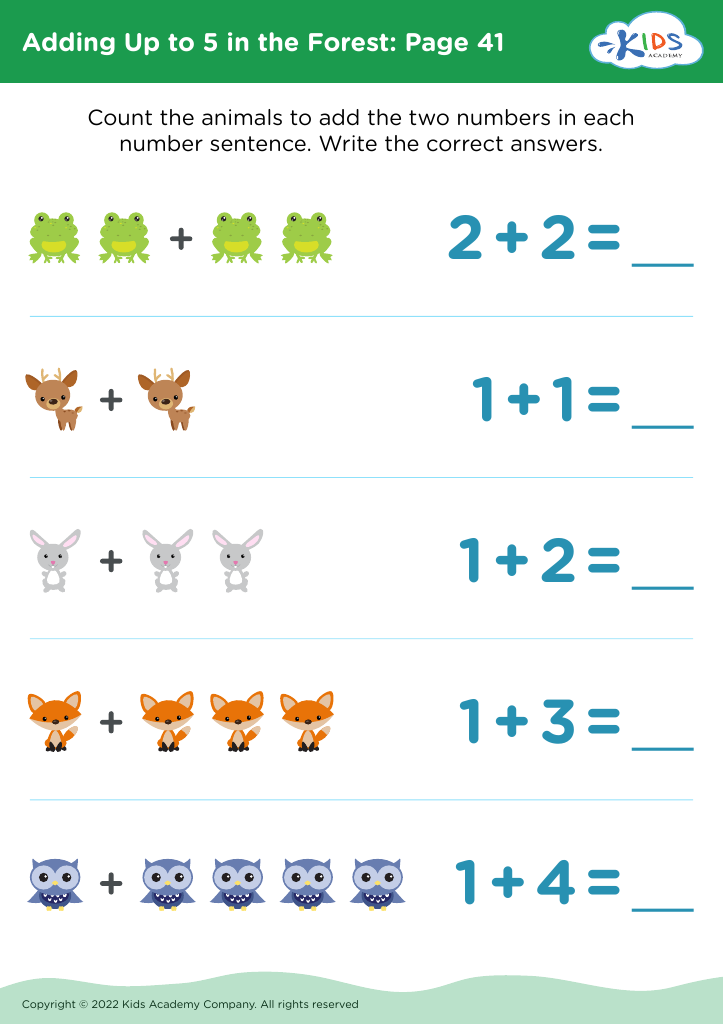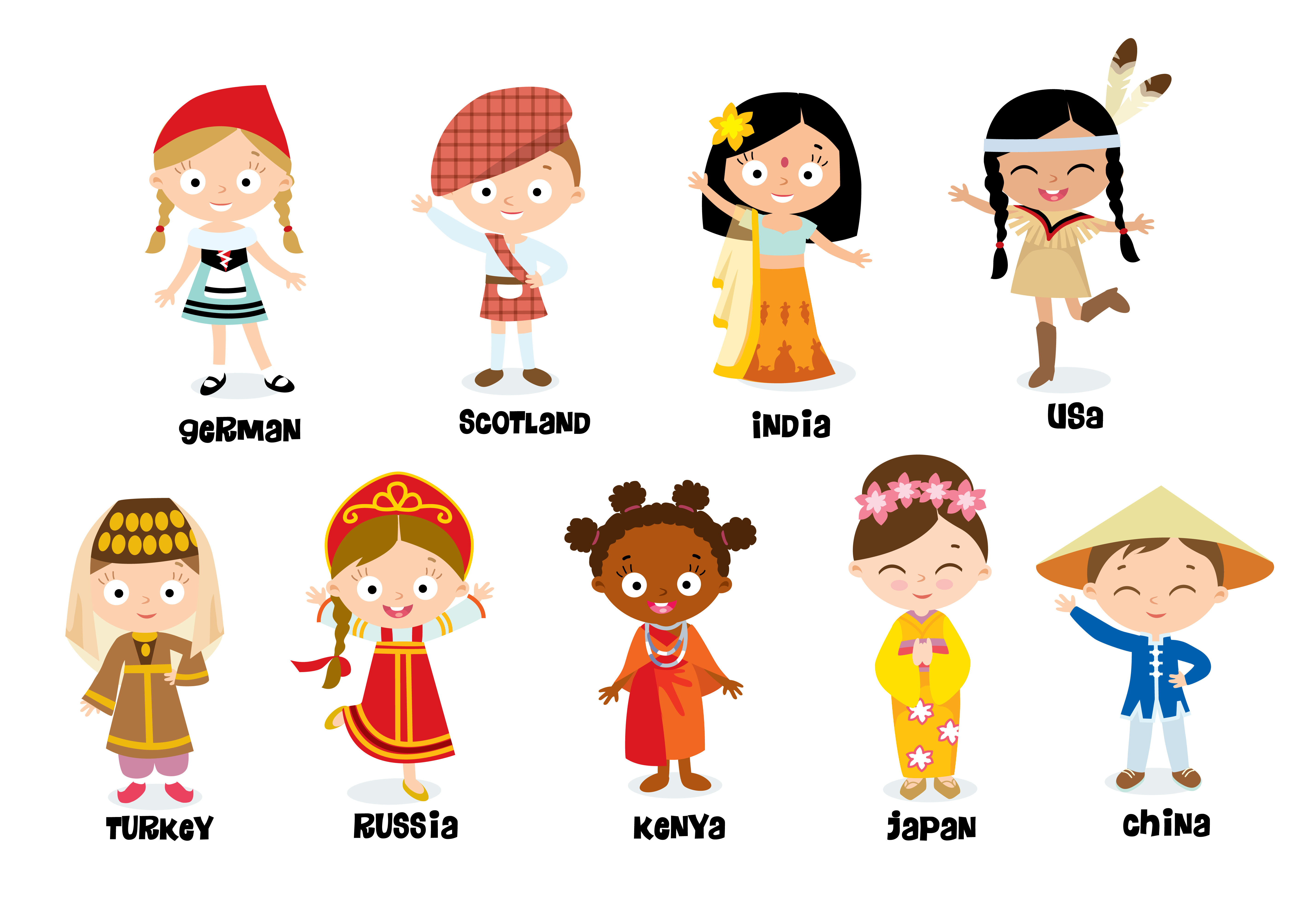Counting practice Math Worksheets for Ages 4-6 - Page 13
297 filtered results
-
From - To
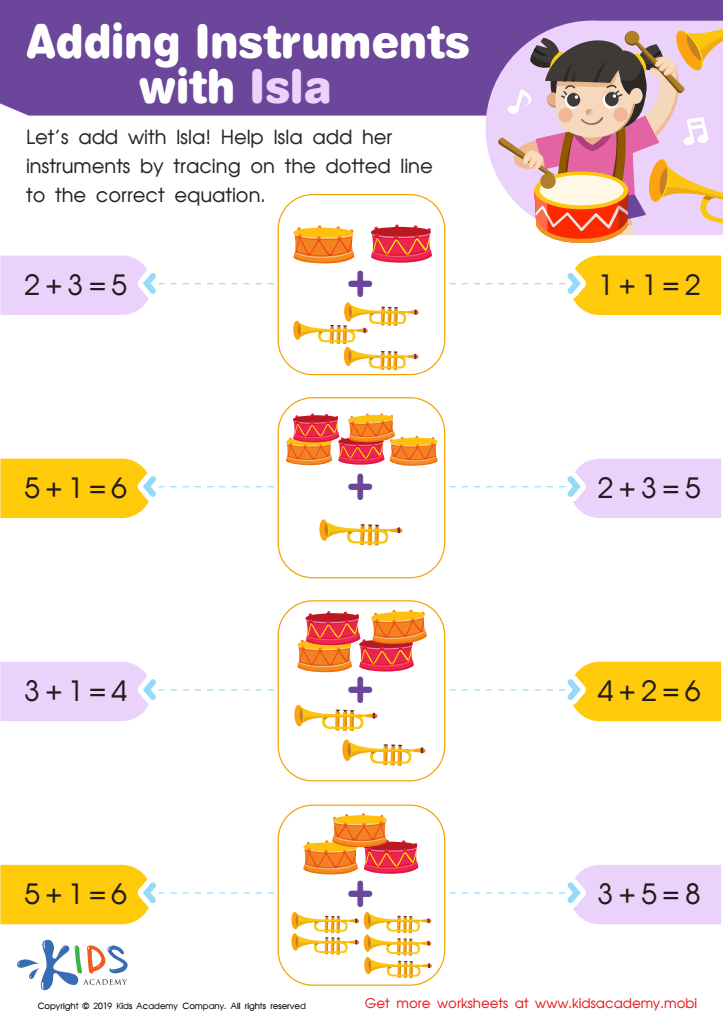

Adding Instruments with Isla Worksheet
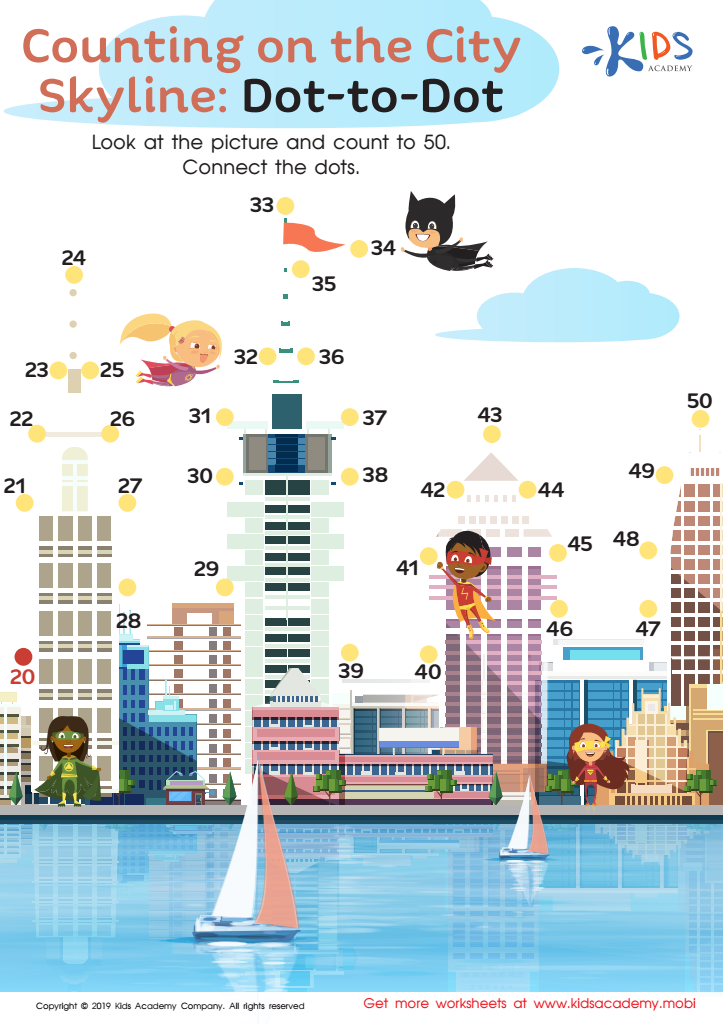

Counting on the City Skyline: Dot-to-Dot Worksheet
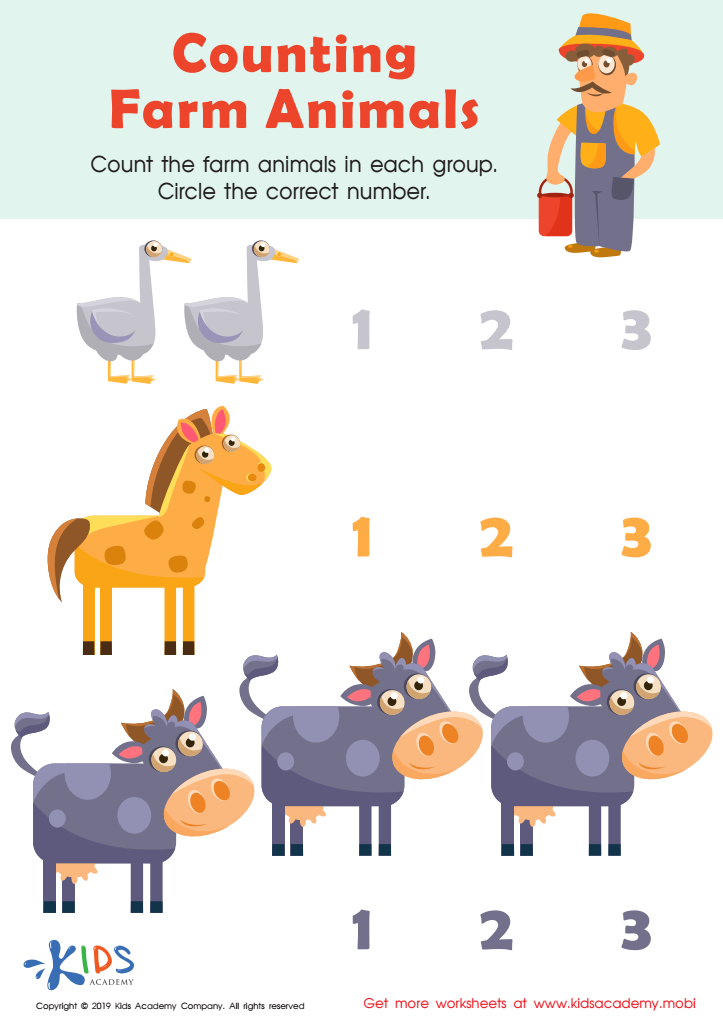

Counting Farm Animals Worksheet
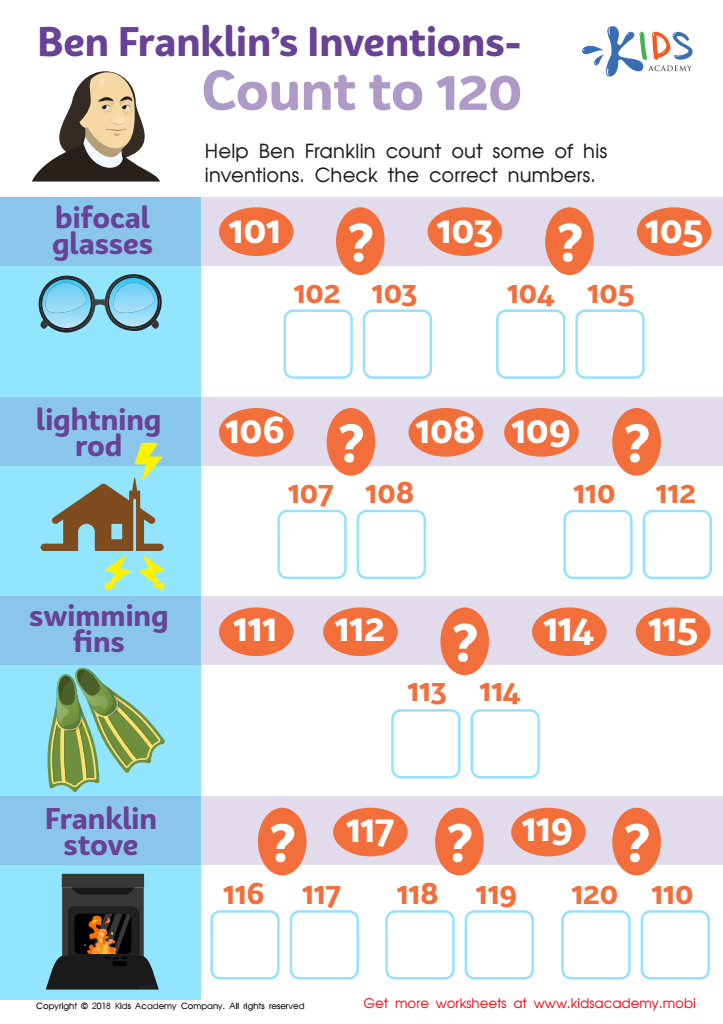

Ben Franklin’s Inventions – Count to 120 Worksheet
Counting practice for children aged 4-6 is essential for laying the foundation of strong mathematical understanding, which can significantly affect their future academic success. During these formative years, children's brains are highly receptive to new information, making it an ideal time to introduce basic math concepts. Counting helps develop number sense, which is the ability to understand and work with numbers. It forms the cornerstone for more complex math skills like addition, subtraction, and even multiplication.
Moreover, counting practice nurtures concentration and memory. Young children learn to focus, follow sequences, and remember numbers, which enhances their cognitive development. These skills are not only crucial for math but also for overall academic performance, including literacy and problem-solving.
Additionally, early counting practice helps children understand the real-world applications of math. Recognizing patterns, telling time, and even day-to-day activities like sharing toys or snacks involve basic counting. It boosts children’s confidence as they frequently encounter situations where these skills are applicable.
Parents and teachers should care about counting practice because it equips children with essential tools for lifelong learning. An early start in math sets a precedent for a positive attitude towards the subject, potentially leading to greater competence and interest in STEM (Science, Technology, Engineering, and Mathematics) fields in the future.
 Assign to My Students
Assign to My Students

